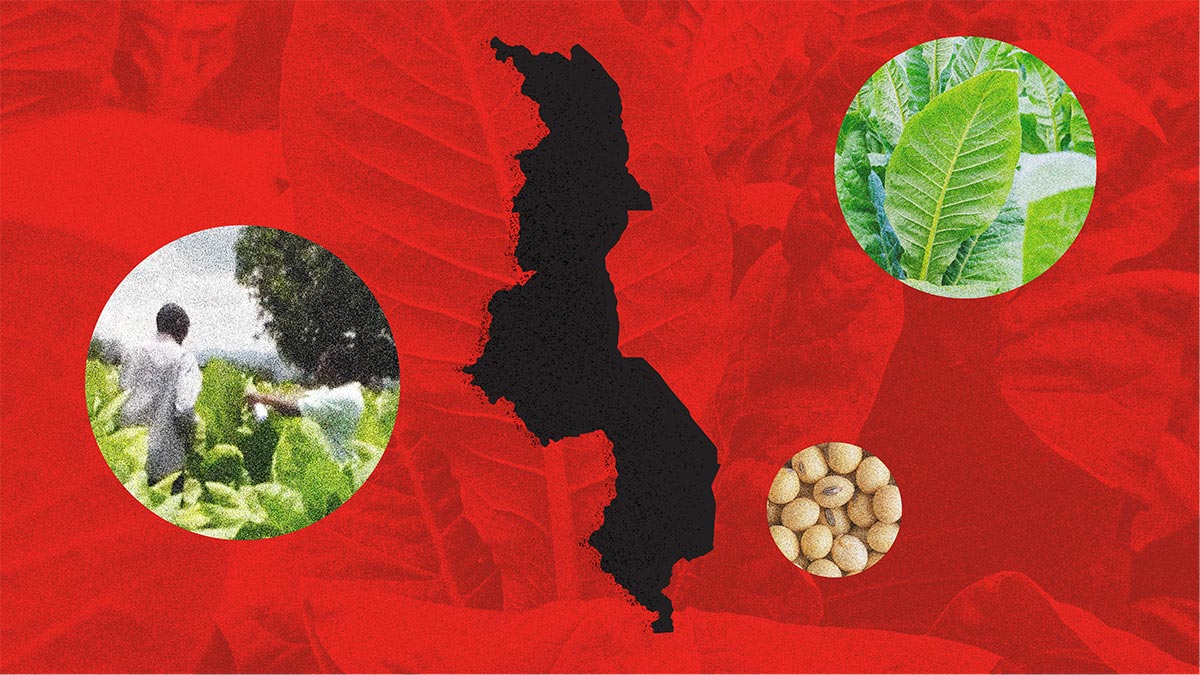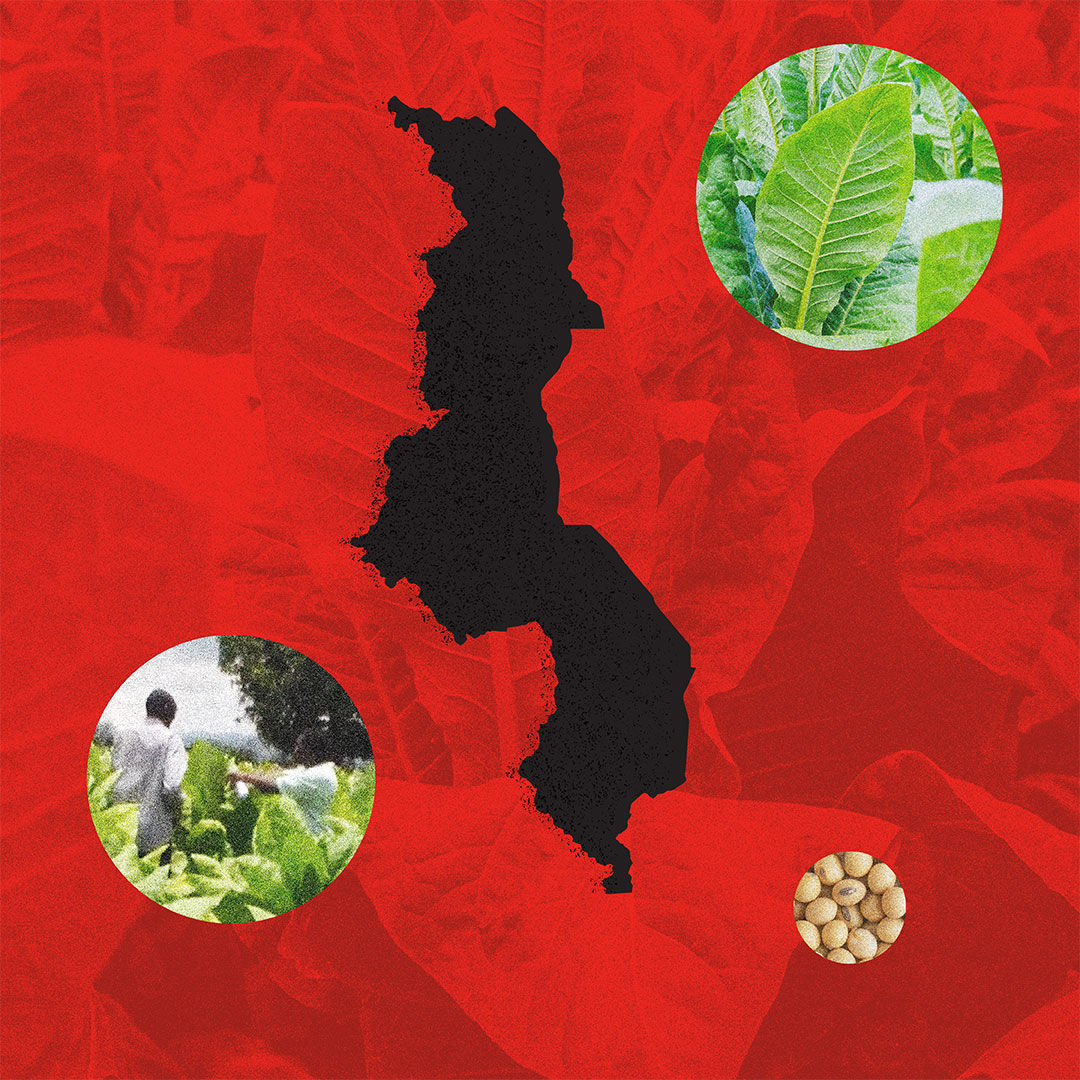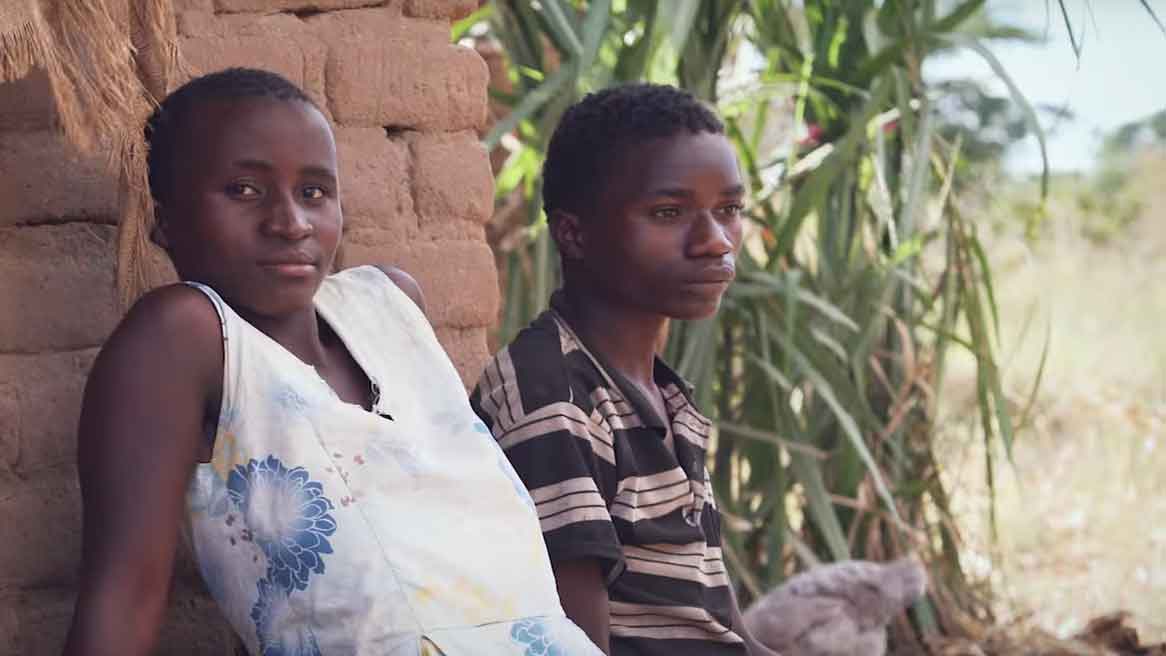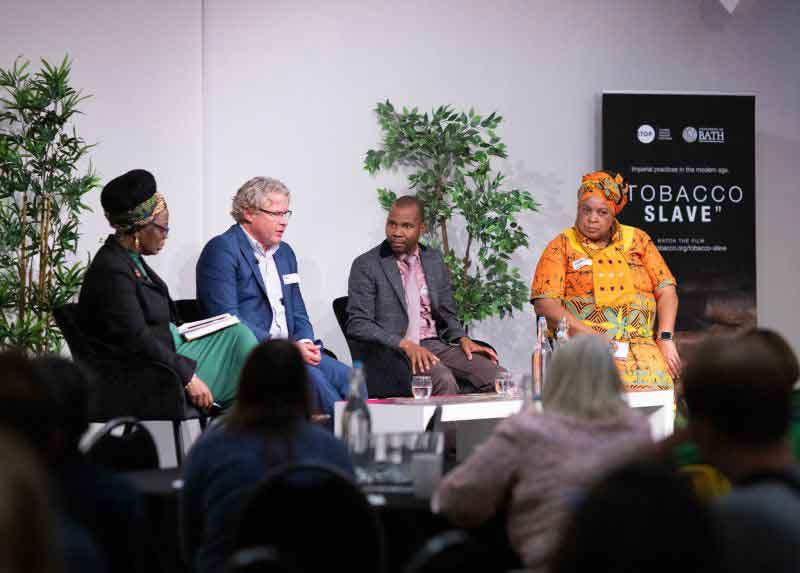- Resources
- News
-
-
Now Accepting Grant Funding Applications
Ready to tackle industry interference? Apply by February 25.
-
Get Email Updates
Sign up for STOP's emails and never miss an update on our latest work and the tobacco industry's activity.
-
Share a Tip
Do you have information on tobacco industry misconduct in your country? Let us know.
-
Now Accepting Grant Funding Applications

Malawi is home to approximately 3.7 million smallholder farmers. Many of them grow tobacco, the country’s No. 1 export. But some of these farmers want to expand their cultivation beyond tobacco, or even move away from tobacco farming entirely.
Global demand for tobacco is waning. Growing tobacco also comes with health risks, such as green tobacco sickness. It is labor-intensive and many farmers in Malawi cannot afford to hire paid help; as such, some feel they have no choice but to pull their children out of school to work. Even then, some farmers barely make a profit or even finish the season in debt.
Crop diversification programs can help farmers move away from tobacco, but who administers them can mean the difference between creating change and maintaining the status quo. A new report suggests that when the tobacco industry is behind these so-called corporate social responsibility programs, farmers don’t get the help they need. But tobacco companies get the reputation boost they want.
Tobacco farmers talk about their experiences with industry-led diversification programs
The report from Malawi-based Sustainable Development Initiative (SDI) and STOP explores the impact of tobacco industry-led diversification programs on tobacco farmers in Malawi. Researchers found that industry-led programs haven’t helped farmers. Most simply reinforced the status quo, and in some cases even negatively affected farmers’ livelihoods.
They found that farmers are sometimes forced to take out loans, even if they don’t need them, to buy seeds for alternative crops. Further, some of these crops don’t have a reliable market, so farmers don’t have an opportunity to profit from them.
One tobacco farmer who was interviewed for the report said, “…Right now, we have to buy inputs and [are] told to grow crops without any market to sell them. I am not able to pay off the loans that I’m required to take under the diversification program.”
Why does the tobacco industry continue to fund these programs if they’re not making a meaningful, positive difference to farmers? Because these programs benefit the industry.

Tobacco company CSR programs address different problems, but they all have something in common: They do not address the root causes of these issues.
A key pillar of the industry’s CSR strategy around tobacco farming
The tobacco industry uses corporate social responsibility (CSR) activities to distract from the immense harm it causes and to try to convince governments, shareholders and the public that it is contributing to the common good.
Industry-led crop diversification programs appear to be a major pillar of the industry’s CSR strategy to distract from the harms of tobacco farming. Crop diversification programs not only make it seem like the industry is helping farmers move away from tobacco, but is also less complicit in other harms caused by tobacco growing, including child labor and environmental degradation.
Child labor is a known issue in tobacco growing. An estimated 1.3 million children around the world work in tobacco production. These children are exposed to pesticides, can contract a type of nicotine poisoning called green tobacco sickness and miss out on a full education. To appear as though it is part of the solution to these problems, the Big 4 transnational tobacco companies fund and govern an organization called the Eliminating Child Labour in Tobacco-Growing Foundation (ECLT), which claims to be a global leader in ending child labor. Critics say it is a front group for tobacco industry interests and that it does not address the root causes of child labor in tobacco-growing.
The industry also uses CSR efforts to distract from the environmental damage caused by growing and processing tobacco products. Tobacco farming is a leading cause of deforestation in countries where tobacco is grown, and each year, tobacco production uses about 22 billion tonnes of water. To counter the narrative that their industry contributes to massive environmental destruction, tobacco companies sponsor and promote activities like tree-planting events, beach clean-ups and donations of trash bins. These efforts, however, do not come close to addressing the scale of environmental damage the industry causes.
Tobacco company CSR programs address different problems, but they all have something in common: They do not address the root causes of these issues. Instead, they allow tobacco companies to promote their seemingly good deeds while continuing to create conditions that perpetuate farmer poverty, necessitate child labor and destroy the environment.
Solutions that are free from industry involvement can make a difference for tobacco farmers
Transitioning farmers from tobacco to other crops is not simple. In Malawi, tobacco-growing is a large and critical sector of the economy, and helping farmers transition will take time and substantial support so that neither farmers nor the economy are put at a disadvantage. The industry, with its obvious conflict of interest, should not be part of the solution.
The WHO Framework Convention on Tobacco Control, a treaty to which Malawi is a Party, obliges governments to reduce the supply and demand of tobacco. Given its history of lies and its interest in selling as many cigarettes as possible, it is crucial that the industry be excluded. Governments can prevent the industry from intervening by implementing Article 5.3 of the Treaty, which specifically obliges governments to stop industry meddling in policy.
As the report about crop diversification efforts in Malawi shows, industry programs ultimately make little difference and, like other CSR efforts, do not address the root causes of the problem. In fact, they can have the opposite effect, perpetuating tobacco growing and keeping farmers in a cycle of debt and poverty, while distracting from the many harms caused by growing tobacco.




